In its initial inception, Zomato aspired to establish itself as the premier restaurant search and discovery platform. This endeavor encompassed the provision of comprehensive information concerning more than 1.4 million dining establishments across 23 countries. This wealth of information included restaurant names, menu offerings, pricing, customer reviews, and other pertinent details.
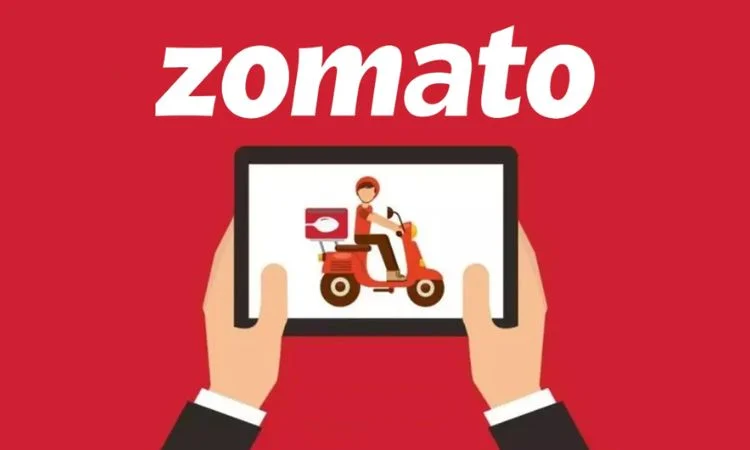
Over time, Zomato has undergone a significant transformation, evolving into an online platform for meal delivery. Presently, individuals can utilize their user-friendly application or website to place food orders from nearby restaurants. Zomato’s dedicated delivery personnel then facilitate the seamless pickup of orders from the chosen restaurant and ensure their timely delivery to the specified destination.
In addition to its operational evolution, it is pertinent to delve into Zomato’s astute marketing strategy, which is exemplified by the following quote from Deepinder Goyal, the Co-founder, and CEO of Zomato: “If something does not go as planned, then the core team of Zomato is always ready to pick it up and go through the same afresh, making the necessary changes.” This steadfast commitment to adaptability and continuous improvement underscores Zomato’s resilience and unwavering dedication to customer satisfaction.
The Marketing Strategies
Zomato : Target Audience
Zomato’s target demographic encompasses individuals aged 18 to 35 who possess smartphones and are proficient in using mobile applications. The company strategically targets two distinct customer segments: those who prefer dining at restaurants and those who seek the convenience of food delivery to their homes. It is important to note that these two customer groups often overlap, resulting in a diverse clientele.
Zomato’s initiatives, such as the Zomato Gold program, are designed to cater to this varied audience. This program not only offers enticing incentives for those who enjoy dining out but also ensures efficient food delivery services for those who prefer the convenience of enjoying meals at home.
Within this target demographic, Zomato seeks to address the needs of a wide spectrum of customers, including the employed workforce seeking office meals, students residing in dormitories in need of sustenance, individuals with limited time or resources for meal preparation, and those who occasionally indulge in dining out experiences. By catering to the diverse requirements of this audience, Zomato has established itself as a versatile and comprehensive food service provider.
Zomato’s: Digital Marketing Channels
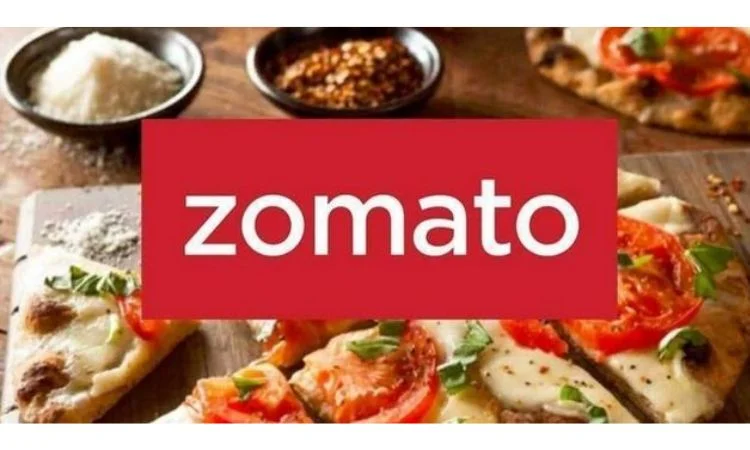
Zomato employs Google Adwords as a pivotal component of its search advertising campaigns. The platform strategically targets a range of keywords, encompassing phrases such as “food,” “online ordering,” specific restaurant names, and various others.
This approach is designed to captivate the attention of individuals seeking food delivery services. In addition to its search campaigns, Zomato leverages Google Display advertising to effectively reach potential customers across various third-party apps and websites. This multifaceted digital marketing strategy is instrumental in broadening the platform’s reach and engagement.
Zomato: Influencer Marketing Strategy

In its influencer marketing strategy, Zomato has demonstrated a noteworthy commitment to the concept of “hyper-local marketing.” This approach involves the promotion of Zomato’s content in regional languages and active engagement with micro-influencers. Such a deliberate effort significantly enhances Zomato’s credibility and expands its outreach to a broader audience.
In recognition of the potential inherent in influencer marketing, Zomato has strategically incorporated it into its advertising strategy. Regardless of whether the influencers are macro or micro in scale, Zomato consistently seeks to push the boundaries and harness their influence to expand its user base.
Zomato’s online presence is marked by its characteristic humor, which is evident in its witty and engaging tweets. This distinctive approach allows Zomato to connect with its audience, offering content that brings a smile to consumers’ faces, no matter the challenges they may face or the daily issues they encounter. Moreover, the humor permeates through social media, creating a substantial ripple effect.
In an era where memes are an integral part of social media culture, Zomato has adeptly mastered the art of “meme marketing” due to its recognition of its significance. Through this content marketing technique, the food tech company generates a considerable amount of organic traffic, ultimately contributing to a notable increase in its overall revenue.
The Digital Marketing Strategy of Zomato
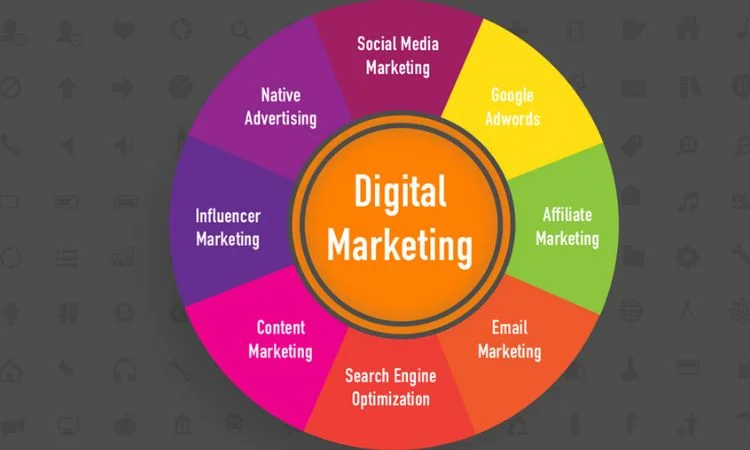
Zomato strategically leverages its digital presence across major social media platforms such as Twitter, Facebook, and Instagram. As of July 2019, the company has amassed a substantial following, boasting 726,000 Instagram followers, 1,899,405 Twitter followers, and an impressive 1.42 million followers on Facebook.
Zomato’s approach to social media is marked by its astute understanding of its target audience. Recognizing the preferences and interests of its followers, the brand consistently shares content that not only captures their attention but also prompts them to engage in meaningful conversations and share it with others.
By tapping into trending topics and utilizing simple yet compelling visuals, Zomato successfully fosters active online interactions and encourages users to revisit its content. This deliberate approach to content creation and audience engagement underscores Zomato’s commitment to maintaining a strong and influential digital presence in the highly competitive realm of digital marketing.
During the 2016 Olympics, Zomato effectively leveraged the Twitter platform to promote its brand with a strategic and engaging approach. The company showcased its creativity by crafting Olympic rings out of coffee, humorously asserting that if coffee consumption were an Olympic sport, they would undoubtedly secure the gold medal.
In addition to capitalizing on Olympic buzz, Zomato demonstrated its agility in seizing current trends, such as the “Pokemon Go” phenomenon. By featuring the beloved Pikachu character in its promotional efforts on Twitter, Zomato effectively tapped into the global fascination with the game.
Zomato’s adeptness at connecting with its audience was underpinned by its ability to align its content with trending topics. Recognizing that social media users often seek lighthearted and entertaining material, the company astutely ensured that their posts added value to users’ feeds, thereby increasing the likelihood of social sharing and engagement.
It is worth noting that Zomato understands the necessity of adapting its digital marketing strategy in response to evolving trends.
As new trends emerge, the company is well-prepared to devise fresh and innovative strategies to captivate its audience. Their current efforts are commendable, and by maintaining their commitment to this dynamic approach, Zomato stands to reap significant benefits from its digital marketing initiatives.
Zomato: Strategic Collaboration Initiatives
Zomato has undertaken proactive measures to strengthen its collaboration with government authorities, with the primary objective of ensuring uninterrupted service delivery during times of crisis. Concurrently, the company is committed to extending essential support to the extensive network of individuals involved in its delivery operations. As part of this resolve, Zomato has established a dedicated fund to mitigate income losses faced by its workforce in the wake of unforeseen crises.
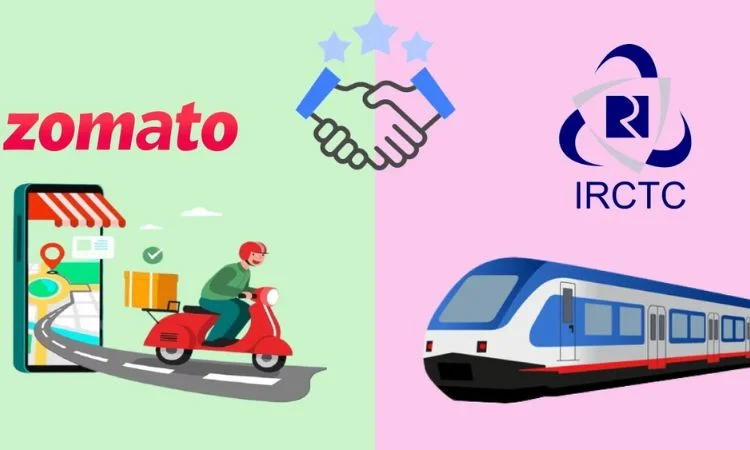
Photo Credits: Zomato Collobaration
Furthermore, the company has demonstrated its responsibility towards the health and safety of its delivery partners by providing them with protective masks. These strategic endeavors underscore Zomato’s unwavering dedication to maintaining operational resilience, safeguarding the livelihoods of its workforce, and prioritizing the health and well-being of its essential frontline personnel.
Zomato has consistently demonstrated its prowess as an industry pioneer by recognizing the inherent value of video content and effectively leveraging it on the YouTube platform. Within the realm of YouTube, Zomato strategically deploys succinct, compelling, and unskippable video commercials, accompanied by subtle yet compelling “call-to-action” elements. It is therefore apt to affirm that video advertisements occupy a pivotal position within Zomato’s overarching digital marketing strategy.
Zomato: SEO Strategy
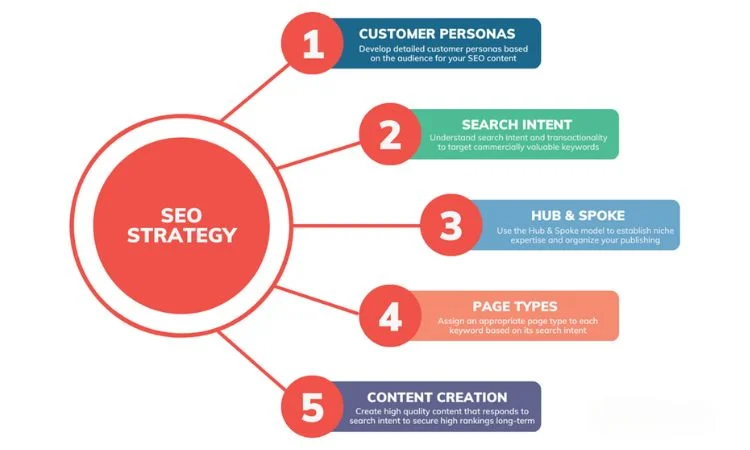
The importance of a robust SEO strategy cannot be overstated, and Zomato recognizes this fact as a core component of its digital marketing efforts. An impressive 53.63% of Zomato’s traffic is derived from online searches, underscoring the company’s commitment to an effective SEO strategy.
This reiterates that Zomato relies heavily on a well-executed SEO approach to maintain a prominent presence in Google’s organic Search Engine Results Pages (SERPs). This synergy between an unwavering SEO strategy and diligent efforts has propelled Zomato’s brand to consistently excel in the competitive online landscape.
Zomato: Paid Advertising Campaigns
Paid advertising represents a vital component of a brand’s marketing strategy, serving as an essential tool to maintain engagement levels. In the realm of effective marketing, it is imperative to strike a balance between paid advertising and organic optimization, as this coordination plays a pivotal role in enhancing a brand’s visibility in search results.
Zomato, a leading player in the food delivery industry, demonstrates a mastery of this principle.
Zomato’s advertising strategy is meticulously crafted to not only capture the attention of its target audience but also to retain their interest.
Leveraging the power of Google ads, the company strategically targets specific customer segments, seamlessly integrating these paid advertisements with their organic search results.
This seamless blend enables the brand to cast a wider net and effectively engage with a diverse spectrum of keywords, a feat that would have been unattainable through organic means alone.
Zomato’s Marketing Campaigns are templates of successful paid advertising techniques, offering a potent means to continually connect with their audience and foster enduring customer relationships.
Conclusion
Zomato has firmly established itself as a brand that resonates with consumers and leaves an indelible impression. Its remarkable presence in the market is truly tangible.
If you are eager to explore in-depth digital marketing case studies from other renowned brands and aspire to become an exceptional digital marketer, we invite you to consider enrolling in our Post Graduate Program in Digital Marketing offered by SimpliLearn in partnership with Purdue University.
This program is a result of collaboration with Facebook and offers masterclasses from Facebook, Purdue, and Harvard Business Publishing case studies. Embrace the opportunity to embark on your journey of learning and enroll now to enhance your digital marketing skills















